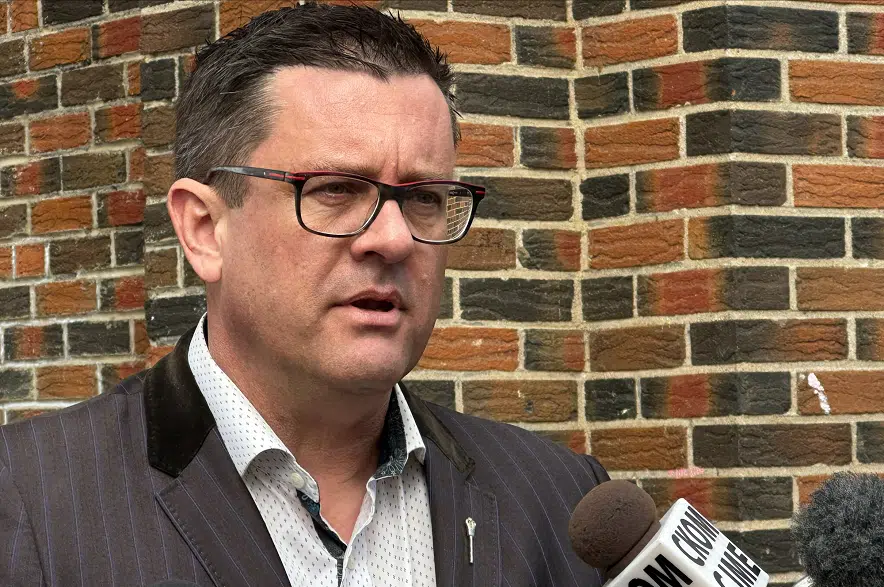Three groups of health-care professionals in Saskatchewan are getting expanded scopes of practice.
On Friday, the provincial government announced pharmacists, nurse practitioners and advanced care paramedics will be able to provide additional services and improve patient care.
“These changes will empower our highly qualified pharmacists, nurse practitioners and paramedics, giving them the opportunity to make greater use of their skills and expertise to further support patient care,” Health Minister Paul Merriman said in a media release.
“Expanding scope of practice in these three professions will serve to strengthen our health-care teams, improve patient access to health services and help build additional capacity within our health care system.”
Under the new arrangements, pharmacists will be able to do independent prescribing, order lab tests and conduct point of care testing, such as drawing a small blood sample, to give patients advice on medication for things such as diabetes and cholesterol.
The announcement is big news for Amy Wiebe, the president of the council for the Saskatchewan College of Pharmacy Professionals. She’s been on the council for five years and feels at the end of the day, this will help patients get the prescriptions they need rather than having to wait for their pharmacist to talk to their doctor.
“This is just the next step in really allowing pharmacists to play a role in being partners within the health-care system to build capacity,” she said.
Wiebe feels the change will allow pharmacists to now practise to their full potential and suggests it will really help people in rural areas get the care they need quicker.
“I think with not having the ability to independently prescribe, pharmacists were really reliant on practitioners who could prescribe in order to make significant changes to medications people were taking — or even small changes to medications,” Wiebe explained.
“One of the things that we’re seeing now is there’s a number of medication shortages across the country and when that happens and (medication) is not available for a patient to receive when they go into a pharmacy, in the past, a pharmacist would need to contract a prescriber in order to make a change to another similar but technically different medication,” Wiebe added.
“Now that barrier will be reduced and pharmacists can use their clinical knowledge to make changes such as that in patient medications.”
While the province will allow pharmacists hopefully in the next year to prescribe different drugs to patients, Merriman says it won’t give them free range to prescribe whatever they want.
“There will be a ring fence around what they can prescribe. We’re going to work that out with the pharmacists, the association and the regulatory bodies. We’re going to look at what their needs are and we’re going to hear from them,” he explained.
Merriman said there will also be an approval process the drugs have to go through. He suggested that process will be sped up in order to get the help the system needs especially in rural areas.
Other news announced on Friday will see nurse practitioners soon have the authority to admit or discharge patients, conduct the first examinations of new long-term care (LTC) residents, handle the medical care and treatment of the residents, and provide emergency care and sign death certificates for LTC residents.
Advanced care paramedics will be allowed to suture minor wounds, cuts or lacerations in hopes of easing the burden on emergency rooms and to increase care in rural and remote locations.
The Ministry of Health said the changes will be implemented over the next year. They’re part of the government’s Health Human Resources Action Plan to recruit, train, incentivize and retain more health-care workers in Saskatchewan.
Merriman thinks the changes will really help in rural areas.
“We’re having some challenges within our rural health-care setting and we want to enhance pharmacists, nurse practitioners and paramedics. We’ll work as fast as we can,” Merriman stated.
“Today, we’re really excited that this is Step 1 and now we’ll be looking at what’s Phase 2. There’s been several associations who’ve approached me to say we would like to expand our scope as well, so we’re going to sit down and start a process with them and start another process of expanding scope.”











